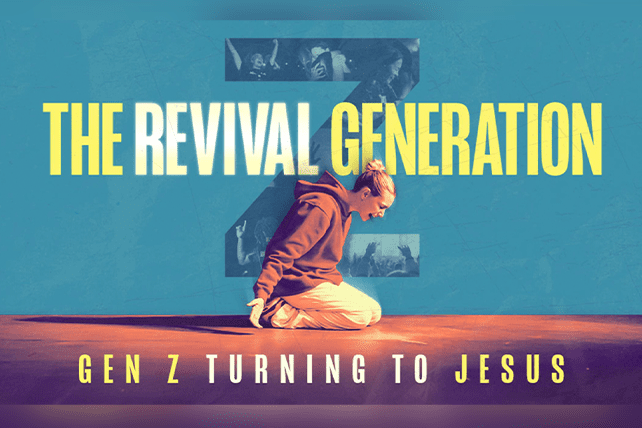Bringing these free events to campuses is no small feat. UniteUS now functions as a nonprofit, and according to tax forms, all key employees, excluding Tonya Prewett, work on a volunteer basis. College students interested in hosting Unite fundraise for associated fees; according to the documentary, the cost of these events, including arena rentals and production costs, can reach into the hundreds of thousands of dollars.
Robertson and director Laura Hand said those being baptized are a mix of students raised in the Christian faith who are rededicating their lives to Christ and students embracing Christianity for the first time. When asked why these events are resonating, Hand and Robertson said it’s because the gospel’s emphasis on freedom from sin speaks directly to the struggles Gen Z is facing.
“I think they were seeking a sense of meaning in their lives, a sense of purpose, a sense of ‘who am I’ … and a sense of truth,” said Hand. “And I think for a lot of them who are seeking this, they were starting to find those answers in faith.”
David Kinnaman, the CEO of evangelical Christian polling firm Barna Group, told RNS Gen Z is showing “a surprising amount of religious activity.”
While most data about religion and young people shows that Gen Z are the least likely to attend services, Barna’s model recently found that Gen Z churchgoers attend more regularly than other generations. Barna’s findings are surprising, said Kinnaman, who is also featured in the documentary, given that in previous generations it was common that young people’s religious attendance would dip before it ramped up in later adulthood.
Still, Kinnaman acknowledged this is just one of many trends. As a researcher, he said, he would be hesitant to characterize what’s happening among Gen Z as a “revival.”
“It’s less about revival and more about renewal and sort of, catching back up to where the erosion happened,” said Kinnaman.
Liz Bucar, a professor of religion at Northeastern University in Boston, agreed there are many changes happening simultaneously among Gen Z. The documentary’s premise, she said, seems to align with what she has observed about some young Zoomers who are interested in more conservative, traditional or Orthodox ways of religion; these young adults appear to be “taking up a lot of cultural space,” she said, even as other Zoomers leave the church over concerns about institutional harm or misalignment with core values such as LGBTQ+ inclusion.
“I think they’re all, like, looking for meaning and some sort of stability in what is a pretty hard time to be living through,” said Bucar. In her experience, many Zoomers are reacting against the syncretic, ad hoc, New Age approach to spirituality adopted by some older generations. Instead, Zoomers are seeking more structured community, a moral framework, and want to do something about the world’s suffering. Even those not returning to institutional religion, she said, are looking for a sincere, authentic approach to spirituality that is “less extractive, more grounded in a context.”
The filmmakers agree that Gen Z is seeking meaning and purpose. That’s why, they argue, UniteUS has been so successful. Their events are supported by local churches and explicitly offer students ways of plugging in to Christian community long-term. And they believe the UniteUS revivals are all part of a much larger movement of revivals impacting students at Asbury, Ohio State and beyond.
“These baptisms are springing up everywhere. And it’s incredible to see that in this generation that has been plagued as hopeless, struggling with depression, anxiety, all of these things at levels that the prior generations have never seen before,” said Robertson. “The air is so ripe for revival, it’s so ripe for hope.”
The film is available to stream and the next scheduled stops for UniteUS are at universities in Florida, Tennessee and Arizona.
This article originally appeared here.

